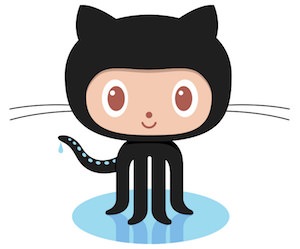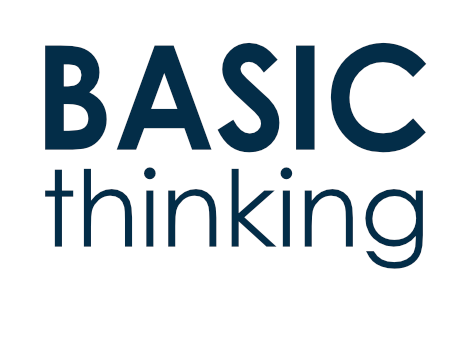The OpenSource culture hast eaten its way through big players like Microsoft and Apple. An important factor for this was GitHub. The platform, that gives a digital home to more than 15 mio. developers and their over 35 million projects. The platform, that treats developers like people and not like production units. We spoke with Vice President of Product Management, Kakul Srivastava, in Munich about the reasons for the new pricing model, why everybody should know ATOM.io and why every company is a software company today.
Tech-affine. Introvert. Science Fiction-Lover. Previously worked with Adobe Systems, Slack, Yahoo!. Successfully sold the private startup Tomfoolery to Yahoo! Today Kakul Srivastava is with GitHub and the Vice President for Product Management. I met her for a cup of tea in rainy Munich. She just arrived from Amsterdam and she’s got big news.
![]() Hier geht es zur deutschen Version des Gesprächs.
Hier geht es zur deutschen Version des Gesprächs.
Munich, May 2016
You have just been to Amsterdam and were on stage of the Github Satellite conference. There you moderated a panel called „Every company is a software company“. Would you give us a brief look into the idea of it?
We had our first international conference, a user conference, in Amsterdam. it was called Github satellite. We had a keynote by our CEO Chris Wanstrath, followed by two tracks: Discover and Develop. And the idea was one was really allowed people to really learn about what was going on and the other was really about using software development in the core of the business, more about tips and techniques how to actually do something.
This is not something GitHub is doing. It just happens in the world. GitHub just happens to be part of it. And we are participants and observers of this behavior. But this very large sea-change is happening in the world. We are just increasing these companies from more traditional industries that are realizing the competitive advantage actually comes from their software. In the automotive industries, we have a couple of really big customers. No one is competing on tires, or axles or even engine technology. They are competing on the software. They are competing on „Can you do analysis on the speed of breaking and the texture of the ground to beak the car in a certain way?“. They are competing on „Can we build a autonomous driving algorithms and put them in the car. They are competing on „How do we take the video feed from the back of the car and give better guidance to the driver. to say Oh, you are about to hit something. We will send you a noise or a visual display. Thats all software. And for the last decade the automotive industry has been competing on software. So they are realizing, that in order to compete to the Elon Musks of the world, they have to treat software as a first class thing.
We have a large retail customer. They say, we are not competing on logistics anymore. We are competing on information technology. We are competing on how we are using software to manage our inventory, manage our user experience, understand user behavior and user preferences and fulfill all these needs and desires with our products. And as they realize that, they need to treat software as a first class thing.
We can do basic software development on these smartphones.
And you see that happen across industries and thats really interesting. I think there is an underlying trend, beneath this, thats actually even more fascinating and you see less of it right now but its going to become really important wich is that software development is becoming more accessible over time. So when you think about the beginning of software development, you needed to live near a large mainframe computer. You need to be able to feed punchcards into the machine. And now we can do basic software development on these smartphones.
We just launched something at GitHub Satellite called Electron 1.0 It allows you to build very, very sophisticated software using simple web technologies: HTML CSS, JavaScript. Its the first thing you lean when you become a software developer. Now using these basic technologies you can write really sophisticated software. Thats pushing the envelope of what accessible software means. When software development becomes accessible you can start to use it in all of the professions. I could be a microbiologist and use code to do my work. I can be an architect and use code to do my work. I can be an artist and code to do my work.
It shouldn’t be that software development is this thing that only people with the special expertise do.
I have an 11 year old niece and she is at this very special art school near San Francisco. She wants to be an animator and a filmmaker. And she is learning to code to do that. She would never describe herself as a software developer. She never wanted to be a software developer. It would be so geeky, so uncool. But she is absolutely writing code to be an artist and thats the future. It shouldn’t be that software development is this thing that only people with the special expertise do. It’s that we can all use this power to impact our world.
At this event you had SAP talk about social coding. Facebook was there to talk about security. And Spotify gave insights into continuous delivery and feedback loops. So a slightly unexpected mix for these companies. Today we see big corporations working with GitHub and doing amazing things. Is this the way you want to create a more stable revenue stream?
It is a big part of our business for sure. Our revenue stream is split across 3 lines of business: One is our individual user base. So individual developer come and get an individual GitHub Account. If they want to do private collaboration, they will pay us for it. Public collaboration, Open Source is always free. The second group is our ORGs product which is aimed at small businesses and teams, in some cases growing businesses. With companies, big medical technology companies that are used the .com product. And the third Product we have is called GitHub Enterprise, which allows you to install the entire power of GitHub.com inside your own firewall and an unpermissed way. That gives a lot of security and control to companies that need that, but it gives you all this openness and collaboration that you have in the open source world and you can now have it inside your own company.
Let’s go into the SAP case for a moment as it is a German company and the the biggest vendor of business software on the planet. They seem to be very happy with using GitHub and outlined they like the „collaborative nature“ of it. What has been the secret ingredient to make GitHub so attractive in the last months?
The secret ingredient is that you have to treat software developers like people. Some people feel, we should get t-shirts made: Developers are people too. We talk about software development. People have built this whole industry around software development, lifecycle, how do you manage the process. Whats the ROI of these investments. And they are doing is that they a using software developers like a production unit. Just stack up as many of them and each one gives you this much. And thinking about it in terms of the industrial revolution. Software development is fundamentally creative work. You can not treat creative people like units of production.
GitHub recognizes that. And our software recognizes that. And one of our tagline in the early years was social coding. What we recognized was, that for developers, who were used to using Facebook, Twitter and Instagram that social way of communication is really core. And how can we bring some of this social into the coding environment? When you look at a page at GitHub, in some ways it feels very much like Facebook. You got comments, you got people making fun of each other. You find Emojis in there and animated gifs. You are talking about code, but you are still humans interacting with each other.
Developers are people too.
And what companies like SAP and other realize, is that when you have developers that can collaborate easily, you will have developers that can be more of themselves. They are happier. And when they are happier they actually like coming into work and being productive. And thats the secret ingredient: Happiness.
We have seen major changes with the pricing model of GitHub: The number of repositories is free now. The accounts are splitted between personal and enterprise use. Is there a difference in the functionality or the way of working within the software developed? What made you go down that road to the recent changes?
The individual product is really designed for individual users and you can invite a few other people to collaborate. But its really designed around one person, managing that repository, that project. Repository is just the word for where you store your code.

The ORGS product has a lot more team oriented functionality. It’s really designed for a team of people to come together. So you can organize permissions in different ways. You can @mention teams of people so those kinds of capabilities make it a much more powerful tool for teams to collaborate together.
And the enterprise product is very similar to the .com. But it allows you to install it in your private environment. Thats the difference in product and functionalities. Its valuable to different customers in different ways which allows us to place it differently.
In terms of why we made this pricing change, I can say it comes from our philosophy. When we started the business was „Open Source should always be free. Public collaboration, public sharing of software should always be free.“ But when you collaborate in private, thats when you pay for it. Repos where you are sharing things public are free. Repos where you share things in private cost money. So you would buy per repo. It worked really well for us for a long time. What we learned more recently, customers have been telling us and also from our own behavior, when you restrict the number of repos, it leads them to be forced to make creative decisions about how they want to organize their projects. Limiting the developers creativity is the last thing we would ever want to do.
Okay, I give you 10 repos next year.
I have this hypothetical conversation, where the finance guy is coming to the developer and saying „How many repos are you going to use next year? So the developer says „I have no idea. It depends on the projects I have to work on.“ And the finance guy says „No, no I just need to budget our spend for our next year. And that conversation in some ways is so ridiculous. Its like saying „How many documents are you going to create next year?“ That depends on what I am doing. So the finance guy will go and say, okay, I give you 10. You are going to have 10 next year. So the software developer is stuck.
And the way companies budget, and the way people think about paying for it is by user. When I have 10 software developers, I should get each one a GitHub Account. When you have 20 developers, you take 20. Thats how you buy computers, thats how you buy salesforce, thats how you buy any other software. And so thats why the move.
GitHub keeps a very close relationship with the community. You were one of the first companies to openly say sorry and change things on their advice. So I take, they liked the recent plan-updates. Are there feedbacks already and what are the favored reply channels for the community? Still open letters?
As hard as it was for us to get this letter, I also think it’s an incredible honor. Because it means that people care. It means that they have high expectations of us and we need to keep earning that respect.
We have a lot of different ways that we get user information. One, we look very carefully at our metrics and how are people actually using the application. Where people are they getting stuck? Where are difficult things? We do a lot of user research where we ask people to come and test new features. We do surveys with users on a regular basis to understand who they are, what their needs are, supporting those needs over time. We also listen very, very carefully to the feedback that comes in to support. And so we track that with a lot of different data around that. We look for spikes in support requests. What causes the pop up? Was there a bug that was introduced? Or a new category of user coming and they are running into this problem. We try to keep track of a lot of things like that.
As hard as it was for us to get this letter, I also think it’s an incredible honor.
But even with all of that, we are serving a really broad base of developers. And sometimes we fall behind. And we get a letter. And it wakes us up. It was an amazing experience.
GitHub has a vast community in Germany. I heard it is the most active community in Europe with a fascinating growth in traffic of +21% in the last quarter. This makes it even more active than North- and South-America combined. What is your explantation for these phenomenal numbers?
There are two things that are really interesting about Germany: One, I think open source is a big deal here. The second is, its very advanced at technology center. I mean, SAP the worlds largest business software is based here. The automotive industry is transforming itself into this new industry. So you are seeing some really, really exciting new technology and technologists growing here in Germany.
There are markets in which we are growing faster. So in China and India we are growing faster. But when we look at engaged users, Germany is near the top. That is what is really interesting.
Talking about software licenses: Patents seem to become somewhat old-fashioned. More open approaches are way more popular at the moment. What is your take on the future of Open Source and licences?
Open Source historically comes from a world where it is about license. There are licenses, that are open source, that allow other people to reuse the code in some way and I think thats still very important. Whats changing is that code has a half-life. Code decays very quickly. It becomes obsolete very quickly.
You could say, this code is perfect, I am going to patent it and protect it, wrap it up and put some barbed wire fence around it. But it doesn’t matter, because in 6 months its completely irrelevant.
Whats more interesting is that is how quickly are you developing that code. And so you see companies like Microsoft open sourcing .NET. Something that they put millions, the put hundreds of millions of dollars for development in and now they are like „Its Open Source“. Anyone can use it. Anyone can build on it.
Whats more interesting is that is how quickly are you developing that code.
Or you see Google doing that with TensorFlow machine learning or Apple doing it with Swift and they are all doing it on GitHub. What your are really seeing, is saying the code isn’t important. Its how quickly the code is growing. Its how quickly the code is developing. Thats important. And so the fact that we have over 2000 pull requests, which means over 2000 edits on Apples Swift programming language since they open sourced it, is truly phenomenal. They have plenty of software developers inside Apple. They don’t have millions of software developers. We have millions of software developers.
Its not about protecting the code. Its about letting it grow and live and thats what open source does.
So open source is a greenhouse?
Yes, thats a great ananlogy. Thats exactly right.
GitHub is the place to go when talking about managing Open Source Code. You also offer free IDE (Atom) for the development of software. How do you see GitHub in the whole software development process? Are there still some tools missing that you plan on bringing out in the near future?
Thats a great question. I am glad you brought up ATOM. Its not something that people know as well, because we haven’t focused on marketing it in a big way. It doesn’t have the GitHub brand. But ATOM is a very strategic initiative for us. We talk about it as the „hackable text editor“. And the reason is, its is a text editor that you can add packages to it, customize the experience quite a bit. Which can mean anything from the background colors and things like that, to be able to add in special kinds of functionalities.
So we have seen companies take ATOM and customize it for their developing environment. So that when any new developer joins the company and starts using ATOM, all of the special custom workflows and custom tools for that companies developing process are in ATOM from day one. You don’t have to spend any time integrating that stuff or setting up your dev-environment. Its all just plugged in. What could happen over time is a lot of things you need to use in other areas, theoretically you could have in your main development environment and in your text editor. And thats really interesting for us and we think that GitHub will be one component in that environment, inside your text editor. But it could be a million other things. You could also us a competitive product to GitHub. We think investments like that are really interesting.
Electron as well. Investment that start to change the way software development is done. Software development today is extremely different from how it was five years ago. And we think that software development five years from now, will be really different from today. If we are not trying to obsolete ourself by working on this stuff five years from now, you know – Its much better for us to obsolete ourselves that have others to make us obsolete. I think thats why the atom strategy makes sense for us.
For the part whats coming, I don’t know if I am allowed to say. We think about that a lot. We think about what will software development look five years from now. We also spend a lot of time listening to our developers and saying „What are still your big pain points?“ And when we think about the future, its very easy to say, we will also have this and also have that. But its very hard to think about the future when you think what you will not have anymore. What won’t exist because its been made irrelevant. We spend a lot of time thinking about that.
We are thinking what will to be added to the workflow but whats the complexity that we can take away from it.
GitHub saw the start of ZenHub in 2014. Are you happy with the development of this project? Do customers mainly use to gear up their GitHub or just as an independent tool?
ZenHub is not a GitHub product. Its a completely separate company. They, like many companies, use our APIs to add functionality to GitHub. And we love seeing that. ZenHub people come to our office. We spend time with them. Its a very important strategic thing for us to have a pretty rich eco system of other developer tools. We have over 14.000 developer tools that use GitHub as a way to authenticate. Software development companies will integrate with GitHub before they integrate with any other player on the market because of the large user base. Again I think that a position of privilege that we are pretty grateful for. And I think we get to earn this place by serving our community of developers really well.
The IT sector is still struggling with diversity issues. Whenever I entered tech-conferences in the last years, I saw disproportionally many white guys. Even though its been getting better I would still like to know: How is GitHub dealing with it to change it and maybe you have a tip for all the women out there who followed your career?
Its a very real problem and its a very hard problem to solve. I’ve been spending a lot of time thinking about this. And as a technology company there is only so much we can do. Its so much about our cultural environment, how we grow up, what we see in the media, but here are the things we can do:
We can help creating an environment, where you are judged on the quality of your code. More so your are judged on your gender, your race, where you went to school, and all of those things. GitHub allows you to do that.
We can help creating an environment, where you are judged on the quality of your code. More so your are judged on your gender, your race, where you went to school, and all of those things.
When you go look at a developers profiles, in their linked in account, their resume or their blog, they will often have a link to their GitHub Profile. Because when you go to your GitHub profile you can actually see the code. And you can say: This person is a good coder, or not a good coder, wether or not they got a PhD from MIT or Stanford. And there are many, many young people from all over the world who are really amazing coders and have never gone anywhere near Standford. And they should be judged on the quality of your code.

The second thing is, we can give flexibility. We can give flexibility to both, men and women to say, I should be able to do work from everywhere. I should be able to do work at any time. And it should be okay. 70% of GitHubs engineering team works outside of headquarters. They are both, men and women, that are choosing to put their families first and working from home. Because they can go an greet their child at the door. Then they can come back and code a little more. And then just take a break for dinner and then like work from 10 to 2am. Whatever they need to do, they need to have the flexibility to choose. And I think its also important to say, its not only important for women, its also important for men. Because when men can stay at home, women can often go back out to the workforce and thats really important.
And then helping people learn to code and making coding more accessible. The higher the barrier is, and the more specialized knowledge you need to have, it creates that very small aperture to the tech world. And I think by having this large library of code on GitHub it allows a lot of people to get started with coding a lot easier. Now if you are learning JavaScript, you can go to GitHub and look at tons and tons of JavaScript Code and learn that way.
Prior to coming to GitHub I worked in a coding bootcamp for women and the first thing we asked them to do is a create an account at GitHub, and start building their profile. Start showing the world that you can code and that was a very important part of that experience. So these are not the only answers and they are also just incomplete answers, but I think there are 3 ways to GitHub could help.
Thank you for this interview!









